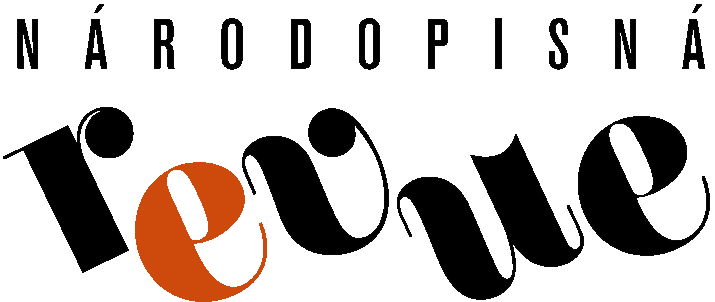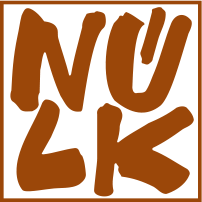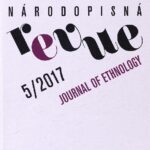The Journal of Ethnology 5/2017 publishes summarizing articles related to the knowledge of the development of Czech (and Slovak) ethnology and to the formation of their particular specializations. Marta Šrámková dealt with the history of the research into verbal folklore (Evolutionary Paths of Czech Prosaic Folkloristics from the Formation as a Scientific Discipline until the year 2000). Martina Pavlicová submitted the knowledge concerning ethnochoreological research (Czech Ethnochoreology in the Context of Time and Society). Martin Šimša assessed the experts’ interest in folk dress (The Research into Folk Dress in the Czech Lands: From Topography to European Ethnology). Zdeněk Uherek dealt with the research into ethnic themes especially in the Institute of Ethnology of the CAS (Ethnic studies in the Czech Republic). Gabriela Kiliánová explained the evolutionary stages of Slovak ethnology (Ethnology in Slovakia in Crucial Historical Periods /after 1968 and 1989/: From a Historical to a Social Discipline?). Miroslav Válka focused on ethnology and the university environment in the Moravian capital (Ethnology at Masaryk University in Brno. The 70th Anniversary of the Foundation of the Sub-Division for Ethnography and Ethnology).
The further section of the special issue includes the Personalia Column. It remembers the names of researchers who have left a significant trace in Czech ethnology and whose production reached the international level: Karel Dvořák (1913–1989), Jaromír Jech (1918–1992), Oldřich Sirovátka (1925–1992), Iva Heroldová (1926–2005), Josef Vařeka (1927–2008), Richard Jeřábek (1931–2006), and Jiří Langer (born 1936).
Evolutionary Paths of Czech Prosaic Verbal Folkloristics from the Formation as a Scientific Discipline until the Year 2000
Two stages can be defined in the development of Czech prosaic folkloristics: the pre-scientific (it created the material basis of the discipline) and the scientific one (formation of the discipline, bounds to the social environment of European Romanticism, formation of theory and methodology). The study follows the discipline’s development and the principal representatives of the scientific stage until the turn of the millennium. In the second half of the 19th century, the revision of the Romantic conception caused the Czech folklore to have been integrated in the world context. The works by Jiří Polívka and Václav Tille were of essential importance – they showed wide knowledge of material, systematic nature, and broad cultural interpretation. Jiří Horák elaborated a comparative approach and laid the foundations of discipline’s theory. Frank Wollman interconnected folklore with the development of Slavic literatures. Piotr Bogatyriov’s works brought structuralism and functional conceptions into the discipline. After 1945, folkloristics as a scientific discipline spread to the Czech university environment and in 1954 the Institute of Ethnography and Folkloristics was founded. After the arrival of Communism the discipline and its task were required to correspond to the then ideology (coal-miners’ and outlaws’ folklore). Field research developed, and general properties of legends and folk ballads, function of folklore in regions, inter-ethnic aspects, types of fairy-tales disappearing, and development of artificial fairy-tales were studied. Attention was paid to memorates, contemporary folklore and folklorism. Works by Jaromír Jech, Oldřich Sirovátka, Antonín Satek, etc. were of significant importance. Czech oral folkloristics is a permanently developing discipline.
Czech Ethnochoreology in the Context of Time and Society
The history of Czech ethnochoreology follows the general development of the interest in traditional folk culture and formation of ethnochoreology in the European geographical space. At present, ethnochoreology is perceived as part of ethnology; however, it overlaps beyond this discipline, especially towards the art-historical study of dance and music. The beginnings of ethnology’s current dance specialization may be part of the abovementioned interest in traditional folk culture in the late 19th century. The work Jak se kdy v Čechách tancovalo [How People Used to Dance in Bohemia] (1895) with the sub-title Dějiny tance v Čechách, na Moravě, ve Slezsku a na Slovensku od nejstarší doby až do konce 19. století se zvláštním zřetelem k dějinám tance vůbec [The History of Dance in Bohemia, Moravia, Silesia and Slovakia from the Oldest Times to the End of the 19th Century with Special Respect to the History of Dance in General] by the historian of culture Čeněk Zíbrt remains a hitherto unequalled Czech synthesis about the history of dance. The work was published again in 1960 as a commented edition. From the late 19th century, dances began to be collected in particular regions and the first collections with folk dances were published. The always stronger wave of the interest in folk dance was intensified by the disappearing dance tradition in the countryside. The intellectuals’ efforts did not focus only on recording the dance, but also on maintaining them. The folklore movement, which built its social position between the two world wars, became stronger in the second half of the 20th century. At that time, the institutionalized aspect of ethnochoreology developed in the Czech lands, and both levels, the practical and the theoretical one, complemented each other. Czech ethnochoreology became involved in international professional structures and the subject-matter of its interest began to spread beyond the borders of traditional folk culture. It focuses not only on folk dance, but on dance as a phenomenon that is one of the oldest expressions of people’s souls and emotions in human existence.
Research into Folk Dress in the Czech Lands: From Topography to European Ethnology
The text presents the development of the research into folk dress worn by the inhabitants of the Czech lands, beginning with the works by topographers focussing on a thorough description of particular countries and provinces of the Austrian monarchy and their inhabitants, to the development of an academic platform. This was preceded by the Czechoslavic Ethnographic Exhibition in Prague (1895) and the associated efforts to present festive and ceremonial clothing worn by rural residents. For the Exhibition, exhibits were searched for in the field, which were described and photo-documented. Many articles were published in special journals; these were supposed to support the collection of materials for an ethnographic encyclopaedia. The publication of monographs on particular ethnographic regions in the post-war period was a certain intermediate stage – folk dress was described in separate chapters of these monographs. The afore-mentioned efforts was crowned by the first volume of the publication Lidové kroje v Československu [Folk Costumes in Czechoslovakia], issued by Drahomíra Stránská in 1949. In terms of methodology, the publication became an inspiration for a generation of female research fellows who based on its spirit their struggle to assess the historical development of folk dress in particular regions. Marxist ethnography brought up new research theme in the 1950s – the interest in the life of the working classes and inhabitants in industrial areas. Later-on, the research got rid of political indoctrination, and the new methodological basis made it possible to focus not only on the historical dimension, but also on the social and cultural role of clothing in the history of the 19th and 20th centuries.
Ethnic Studies it the Czech Republic
The term ethnic studies is not frequently used in the academic community of the Czech Republic. It is predominantly connected to the name of the Ethnic Studies Department at the Institute of Ethnology of the Czech Academy of Sciences and with texts produced by Czech ethnologists dealing with migrations, minorities and adjustment processes to the new environment (in the Czech academic texts of the second half of the 20th century, occasionally called „etnické procesy” [ethnic processes]). The author of this text scrutinizes the meaning of the concept of ethnic studies in the Czech context and poses the question what types of enquiries there have been so far. He compares the concept of ethnic studies in the Czech Republic and the USA, where ethnic studies departments originated in the 1960s and 1980s, and concludes that in the Czech Republic, in contrast to the United States, the theme of ethnic studies relates rather than the ethno-revivalist movements with social anthropological research into the dynamics of human relations and intercultural contacts, which were frequently called interethnic relations in the 1990s.
Ethnology in Slovakia in Crucial Historical Periods (after 1968 and 1989): From a Historical to a Social Sciences Discipline?
The contribution deals with the history of ethnology in Slovakia at the time of Czechoslovak period of “normalization” (1969–1989) and after essential political changes in 1989. The author focusses on the history of ethnology within the Institute of Ethnography of the Slovak Academy of Sciences (later the Institute of Ethnology of the Slovak Academy of Sciences) as a leading workplace in ethnography / ethnology in the second half of the 20th and in the 21st centuries. The author relies on the premise that political changes created new social processes to which the actors in those processes replied and which they co-created. In this case, it is the Academy employees that are understood as actors. The author observes the following issues: What was the impact of political changes from 1969 and after 1989 on the institutional changes in the Slovak Academy of Sciences, the adaptation of legislative regulations and the organization of scientific work? What was the scientific orientation of ethnography/ethnology in the Academy in the two observed periods; that means under the conditions of two different political systems? What were the results of the scientific programme between 1969 and 1989 and after 1989? Was the discipline’s paradigm changed? Was the originally historical science converted to a social science?
Ethnology at Masaryk University in Brno. The 70th Anniversary of the Foundation of the Sub-Division for Ethnography and Ethnology
Since its foundation in the academic year 1945/46, the ethnological (ethnographic) section at the Faculty of Arts of Masaryk University in Brno (Czech Republic) has taken part in the formation of the discipline in the former Czechoslovakia and – since 1993 − in the independent Czech Republic. It was Prof. Antonín Václavík (1891–1959) and his student who defined the teaching’s orientation, so one speaks about the Brno (Moravian) ethnographic school. After 1948, the discipline was declared a historical science and at the Faculty of Arts it became part of several departments dealing with history and history of art together. In 1964, an independent Department of Ethnography and Folkloristics was founded, which was chaired by Prof. Richard Jeřábek ¬(1931–2006), but in the period of Communist “normalization”, from 1970, the discipline was again part of the Department of History and Ethnography of Central, South-Eastern and Eastern Europe. After social changes relating to 1989, the discipline became independent as the Institute of European Ethnology (since 1991). The teaching of the discipline gradually focused – as well as traditional folk culture observed within the Slavic context – on contemporary culture and society (working classes, countryside with cooperative agriculture, ethnic issues, folklorism, oral history, identity, and migration). The lectures on non-European ethnology were delivered by Richard Jeřábek. Domestic and international discovery trips became an integral part of the teaching. This line will be continued by the new study programme of ethnology, which is emerging in connection with the 2016 amendment to Higher Education Act.



